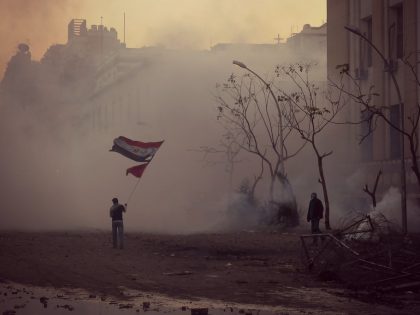
Decolonizing the Lens
Because of the 1994 genocide, Rwanda occupies a complicated place in the world’s imagination. A new film, about the preceding 1973 pogrom, wants to demystify that view. Does it succeed?

Because of the 1994 genocide, Rwanda occupies a complicated place in the world’s imagination. A new film, about the preceding 1973 pogrom, wants to demystify that view. Does it succeed?

COVID-19 spreads from Europe to Africa, inverting colonial imaginaries of African disease and challenging inherited hierarchies.

From exile, bassist and composer, Johnny Mbizo Dyani (1945-1986), explored and promoted the folk music traditions of South Africa.

A documentary film reclaims precolonial histories and spiritualities between Nigeria and Venezuela.

There is a disconcerting resemblance between how some Senegalese talk about homosexuality and how they discuss COVID-19.

The World Food Program says COVID-19 will bring about a famine of biblical proportions, so it is a good time to revisit why food has never just been about the simple act of eating. Food is history. Food is identity.

A new thriller by Andrew Welsh-Huggins follows a detective investigating the disappearance of a Somali-American teenager in Ohio.

A post-colonial visual meditation on archive, memory, and colonial violence.

The author of a book on football and revolution in Egypt gives us a list of must reads on football in the Middle East and North Africa.

Capturing the absurdity of everyday life in Sudan under, now ousted President, Omar al Bashir.

Black Brazilians have to fight official and popular narratives hiding the country's brutal and violent legacy of slavery.

The author and journalist shares a reading list from her time as The New York Times' Bureau Chief for West Africa.

Coronavirus will force all of us to grapple with a new sense of mortality.

The painter talks about how the distance between Nairobi and London allows him to take on topics at the heart of Kenya’s body politic.

Did Frantz Fanon ask Léopold Sedar Senghor for a job in 1953? And what might have happened to postcolonial psychiatry in Senegal if Senghor had given him one?

Imagining a utopian, unified African federation not divided by colonial era borders or neocolonial interventions.

Among the books historian Tallie has on his reading list is one about the food of the American Old South—“… a forgotten Little Africa but nobody speaks of it that way.”

The evolution of techno, from within Detroit’s African-American community to Kampala, Uganda.

The historian of South Africa on books she is reading for a new project on women and anti-apartheid activities in 1950s rural KwaZulu-Natal.

An anthology series, Women Writing Africa, restores women’s writing to the public archive.